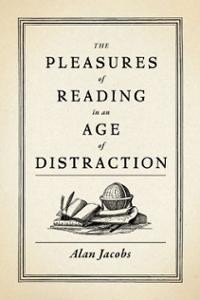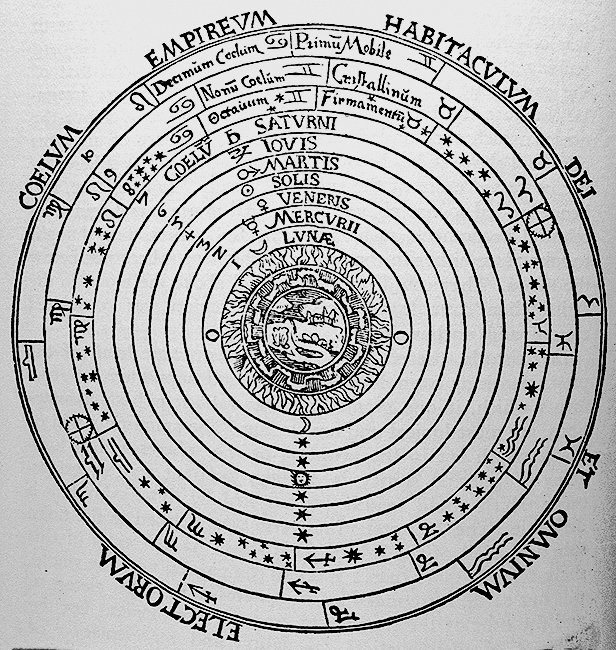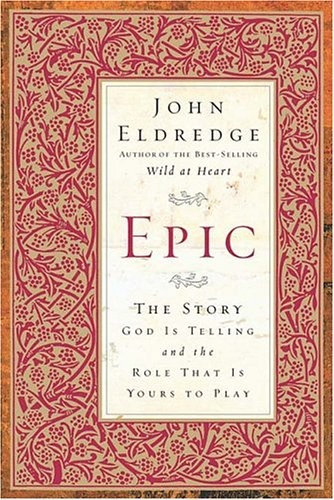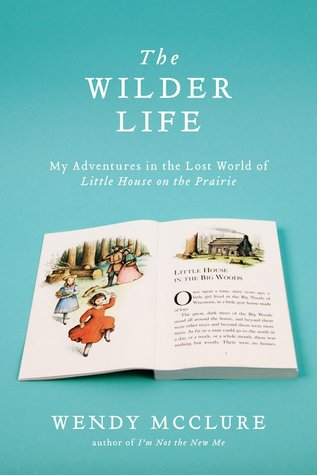The Pleasures of Reading
Plan once appealed to me, but I have grown to be a natural worshiper of Serendipity and Whim; I can try to serve other gods, but my heart is never in it. I truly think I would rather read an indifferent book on a lark than a fine one according to schedule and plan. And why not? After all, once upon a time we chose none of our reading: it all came to us unbidden, unanticipated, unknown, and from the hand of someone who loved us.
 This passage is one of many in Alan Jacobs’ The Pleasures of Reading in an Age of Distraction that explores reading according to Whim. I found myself in agreement with him in his basic response to worries that “long-form” reading is becoming extinct in the digital age: read what you love, what you’re naturally attracted to, rather than adopting an approach to books as the mental equivalent of nutritional supplements or character improvement.
This passage is one of many in Alan Jacobs’ The Pleasures of Reading in an Age of Distraction that explores reading according to Whim. I found myself in agreement with him in his basic response to worries that “long-form” reading is becoming extinct in the digital age: read what you love, what you’re naturally attracted to, rather than adopting an approach to books as the mental equivalent of nutritional supplements or character improvement.
This is a short book, but one full of provocative and (as many others have noted) witty food for thought. It’s disarming in a way, acknowledging that we face some unique challenges to deep attention these days, but this has always been the case for readers. There has never been a time when reading has not been a challenge in a noisy world. (In fact, I think it was in Jacobs’ The Narnian that I came across some compelling discussion of C.S. Lewis’ ability to read with concentration amidst many distractions.) We are in no more danger now than we’ve ever been, really.
Moreover, Jacobs encourages us to think about what our ideals really are when it comes to reading. Though he is an English professor, he points out that deep, appreciative reading as an educational goal is relatively new, and in fact there isn’t really any way to teach it — nor do our educational structures encourage it. College is really about getting a basic orientation in various subjects and therefore is actually more conducive to shallower reading than the kind of “encapsulating aesthetic experience” (as we used to call it in my college literary criticism class) we tend to idealize when we talk about true readers. We may lament that our educational institutions aren’t inculcating enough love for books, but maybe the problem is that this is an unrealistic goal.
There are many interesting and entertaining scenic turns along the way in this book and I enjoyed it thoroughly. But mostly I felt reassured. I was challenged to look at my own reading habits, too. As a PhD in English, I’ve completed plenty of “should read” lists. The year I studied for qualifying exams stands out in my memory: I remember my one-room apartment, and where I sat as I plowed through anthology after anthology in 18th and 19th century British lit, as well as American lit. It’s a good memory, mostly; gradually my mind was illuminated by the connections and trends that I came to see for myself. I probably knew more then than I will ever know again.
But the years since my children were born and I took up my own reading agenda outside the walls of the academy have been wonderful in a different way as I’ve rediscovered whim. A spate of books on technology; another spate by Elizabeth Goudge, when I first discovered her; several on this or that theological issue; a chain of Lewis books. And so on. I’ve had the luxury of rereading books, and of reading books to my children. I’ve read more nonfiction than I ever read in school, finding to my surprise that I was hungry for it and liked it. I’ve been free to respond to the books according to no one’s rules or conventions but my own. I’m not sure which kind of reading has been more “educational” or formative intellectually, but I think I would have a very hard time going back now that I’ve established myself as a Whim reader. (Incidentally, being a Whim reader also means that there are times that I don’t really feel like reading anything, and don’t. That’s not the end of the world either.)
One other way I found this book delightful is in its acknowledgment that not everyone is a reader, and that’s okay. It’s not technology that has zapped these people; it’s always been this way, and it doesn’t mean we’re steadily devolving into illiteracy. It means people are different. Our struggles with various distractions are real, and we have to find ways to manage them (mainly by simply turning some of them off) if we value a life rich with books. But this isn’t really so difficult. Our first order of business, Jacobs reminds us, is choosing books that bring joy. The rest will follow.



4 Comments
Amy
This one has been on my TBR list forever (is that allowed? ;) ). I enjoyed The Narnian especially. I think I could really appreciate this book at this point in my life since my reading is almost entirely at whim now, Bd most often it’s kids’ fiction.
Amy
*and most of it’s
Barbara H.
I think I must be inbetween. I do benefit by reading according to plan sometimes – there are some books I would never get to without that approach. But I like reading according to whim most of the time.
hopeinbrazil
Nice review.